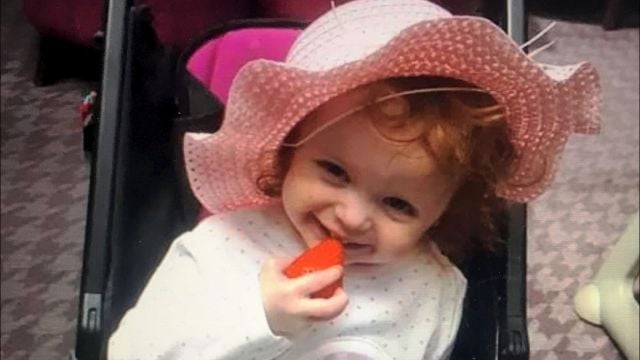A jury of seven men and four woman is continuing its deliberations following a two-week trial that saw a 38-year-old woman charged with the murder of a two-year-old child in Cork.
Karen Harrington of Lakeland’s Crescent in Mahon in Cork went on trial late last month at a Central Criminal Court sitting in the city, charged with the murder of Santina Cawley at 26 Elderwood Park in Boreenmanna Road on July 5th, 2019.
At the time Ms Harrington had been in a relationship of six months' duration with Michael Cawley, the father of the deceased.
The eleven-person jury in the trial has deliberated for close to four hours. The jury requested two pieces of evidence to be sent into the jury room for their consideration today.
These included a recording made by a resident at Elderwood complex of a door being banged 30 to 40 times and a woman shouting in the early hours of July 5th, 2019.
The jury also requested a PowerPoint presentation made by a member of the Garda Siochana Analysis Service showing the differing movements, as captured by CCTV, of Michael Cawley and Karen Harrington at various locations in the Elderwood complex and in Cork city on the evening and early hours of July 4th/5th, 2019.
Trial evidence
Ms Harrington gave direct evidence in the trial where she said that she could not explain what happened to the toddler in her then apartment at Elderwood in Cork. However, she stressed she had nothing to do with the girl’s death.
Ms Harrington had told investigating gardaí that she was a caring person who would never harm a child. The trial also heard evidence from two of her sisters who said that she had taken over raising them when she was a teenager amid family issues.
A close friend of the accused, Yvonne Walsh, had also said that Ms Harrington was one of the few people she trusted to mind her child.
The trial heard that Santina had sustained 53 injuries including fractures to her skull, ribs, arm and leg. She had bruises and abrasions all over her body. Assistant State Pathologist Dr Margaret Bolster told the trial that the injuries were “forcefully inflicted” and were not consistent with an accidental fall.
Presiding judge Justice Michael McGrath had urged the jurors to approach the evidence “coldly and dispassionately” without showing sympathy to any parties involved in the case.
“It is very important that you consider all of what you have heard in this courtroom. You have all the time you need. You do not have to rush. It is your duty to engage in the process. Everyone’s view must be heard. Everyone’s view carries equal weight.”
He told the jury to set aside any sympathy they may have felt for Ms Harrington and her relatives, as well as for the deceased child and her family.
"You must cast any prejudice or sympathies from your mind – you must decide the case coldly and dispassionately and on a sober analysis of the evidence. You must cast a cold and sceptical eye over the evidence, that is how you must test the evidence."
Mr Justice MacGrath said that the presumption of innocence was a bedrock principle of Irish jurisprudence and that must inform their deliberations. He stressed that the onus of proof always rested with the prosecution in the case.
He said that there was no onus on Ms Harrington or her legal counsel to prove or disprove anything and the jury must always be cognisant of that principle in their deliberations as to her innocence or guilt. The twelfth juror was excused from serving last week.







